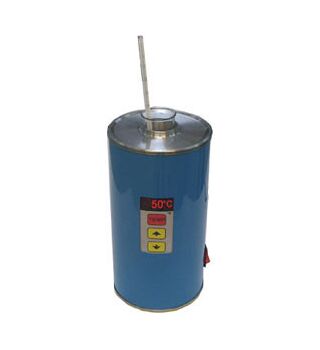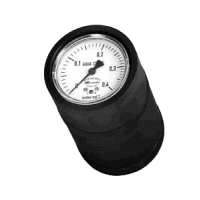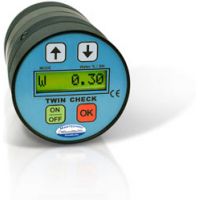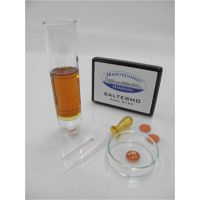COMPATIBILITY TEST
Heavy fuel oil is often a mixture of different fuel oils and during the mix or storage it is possible that sludge or asphalt deposition occurs. The chocked flow in the filters could decrease the fuel injection and cause a reduced combustion in the engine, too.
To avoid this it is advisable to test compatibility and stability corresponding to ASTM D2781.
Features:
- Measuring range: all heavy fuels
- Measuring time: about 10 min.
Benefits:
- Quick and adjustable heating
- Easy to handle and for transport
50 ml of both oils are mixed in a glass tube. The glass tube is put in the test device which is filled with water and now it is heated up to 95° C.
One drop of the mixture is given on the SPOT TEST paper and dries.
The drop must compare with the drop pattern to interpret the result and to check if the oils are compatible.
DENSITY TEST
The quantity of fuel oil is calculated by measuring the volume but must be paid after determine the weight. Density is important to calculate exactly the fuel, respectively the costs for fuel. It is necessary to identify specific parameters, for example heat value or CCAI (Calculated Carbon Aromaticity Index) of fuel, too.
Features:
- Measuring range: 0,82 – 1,05 g/ml
- Measuring time: about 2 min
- Sample: 150 ml
Benefits:
- Quick and adjustable heating
- Direct display in g/ml at 15° C
- Easy to handle even for untrained personnel
- Handy to use and for transport
It is possible to determine the exact density of Fuel Oil, Lube and hydraulic oil with the test device.
The hydrometer measures the density from 0,82 up to 1,05g/ml and converts it into density at standard temperature (15° C).
The shipment includes the Density Meter, a heating, a glass tube, a thermometer and four hydrometers. They show the current density of the oils, directly.
Training Video can be found by following this link:
Compatibility
Density






